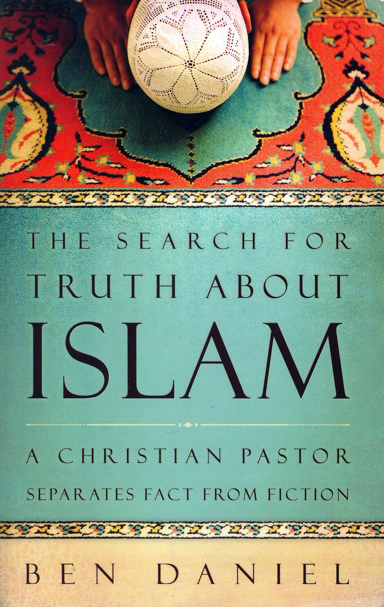There is no doubt the terrorist attacks of 9/11 spread fear among the U.S. public, and the recent Boston Marathon bombing has raised the anxiety level once again. No doubt, some of the ongoing controversy concerning the proposed mosque in San Martin can be attributed to this phenomenon, but perhaps a new book can help alleviate this problem.
“The Search for Truth about Islam” is the effort of a Christian pastor to separate fact from fiction concerning Muslims and their faith’s teachings. The author is the Rev. Ben Daniel of San Jose’s Foothill Presbyterian Church. Educated at Westmont College and Princeton Theological Seminary, Daniel is a prolific writer and frequent contributor to KQED-FM’s “Perspectives” commentary series.
He researched Islam: its founder, history, beliefs and adherents. His book is an attempt to explain his findings, hoping that “the search for truth presented in these pages will bring freedom to those in bondage to a fear of Islam.”
Muslims, Christians and Jews haven’t always been so antagonistic toward each other. He uses a trip to Cordoba in southern Spain to explain the doctrine of “dhimmi” under which Muslims tolerated members of the other Abrahamic faiths as a “protected class of people,” contrasting Muslim treatment of Jews and Christians with the much harsher treatment of Jews by Christians elsewhere in Medieval Europe.
Explaining the importance of the Islamic holy book, he says that the Qur’an was dictated by the Angel Gabriel to Muhammad between 609 and 632 C.E. It is a “beautifully written book and reads much like the book of Psalms. Muslims believe the Qur’an reveals something of God’s presence; for them, to desecrate the Qur’an is to disrespect the very presence of God.”
Daniel shows how Americans have had a long history of “Islamaphobia” (the fear of Islam). Seventeenth century Puritans “peppered their sermons with anti-Muslim invective.” Our young nation’s first international military engagement was against Barbary pirates from North Africa who preyed upon American shipping. The stories of American sailors “suffering at the hands of cruel buccaneers” became embedded in the national consciousness.
Addressing the charge that Islam is a violent religion, the author provides numerous examples of extremely violent acts perpetrated by Christians, including:
• Crusaders who slaughtered innocent Muslims and Jews in the Holy Land and Christians in Constantinople
• Six hundred years of church-sanctioned bloodshed known as the Inquisition
• Modern Catholic-Protestant strife in Northern Ireland.
Reflecting on this history, Daniel writes, “I have no idea why Christians are so violent … Although Islam over the years has not been as violent as Christianity, its history has been marked by a certain amount of violence. I have read the Qur’an, and while it is not as violent as the Bible, some parts are disturbing.”
“Muslims from all over the world and every background insist that unprovoked violence is incompatible with Islam.” He notes that a Google search yielded hundreds of formal Islamic declarations against use of physical force.
Another common misconception is that Islam is a misogynist (woman-hating) religion, but the author provides statistics to show that mistreatment of women (honor killings, lack of education, political nonparticipation) is more closely related to poverty and the region of residence than to religion. He remarks that anti-feminine passages in the Bible surpass anything found in the Qur’an.
The Rev. Ben Daniel echoes the Gospel of John when he hopes that the truths contained in this book will set its the readers free from the fear of Islam and Muslims.
Chuck Flagg is a retired teacher with a passion for religion. Reach him at cf****@**********rs.com.










